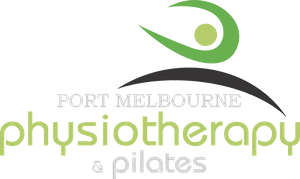Medications such as Ozempic and Wegovy (semaglutide) and Mounjaro (tirzepatide)
are injectable medications that were originally developed to help people with Type 2
Diabetes better regulate blood sugar levels. More recently, they’ve also become widely used for weight management.
These medications mimic the effects of hormones in the gut. (Known as GLP-1 (glucagon-like peptide 1) and GIP (glucose-dependent insulinotropic polypeptide).
These hormones play an important role in regulating insulin secretion. This in turn slows down how quickly food leaves the stomach and reduces appetite signals to the brain.
In other words, GLP-1 medications help you feel fuller for longer. It helps reduce your appetite and in turn helps lower your overall food intake. When combined with diet and lifestyle changes, studies have shown people can lose on average 15–21% of their body weight.
It’s no surprise then that these medications have surged in popularity. But while the medication is a useful tool, it’s not the whole picture. Learning how to eat while using these medications is the most important piece of the puzzle.
Side effects and what this means for nutrition
The most common side effects of GLP-1 medications are constipation, nausea and
sometimes reflux or diarrhoea. These are often linked to how and what you eat.
Small, gradual changes to food choices, fluid intake and eating patterns can make a big difference in how well you tolerate the medication.
Why nutrition support matters
While GLP-1s can help with weight loss, keeping the weight off long term requires building the right habits around food and lifestyle. This is where dietitian support becomes valuable.
A dietitian can help you:
- Work out your protein requirements and show you how to achieve them in practical, realistic ways that fit your preferences.
- Make sure you’re getting enough fibre and fluids to keep your gut happy and
reduce common side effects. - Learn how to structure meals and snacks to keep energy stable and appetite under control.
- Ensure you’re still meeting your nutrient needs, even with smaller portions or reduced appetite.
- Support the preservation of muscle mass through the right combination of
food and activity. - Give you strategies for long term success so you can maintain results beyond the medication
GLP-1 medications are not a quick fix. They are best used as a tool alongside sustainable changes to nutrition, exercise and lifestyle.
Without learning how to eat in a balanced and nourishing way, there is a higher risk of regaining weight once the medication is stopped.
Working with a dietitian means you’ll get tailored advice and realistic strategies. You’ll gain the confidence to know you’re looking after your health, not just losing weight. It’s about
creating a way of eating that supports you now and in the long term.
By Melissa D’Elia, APD

